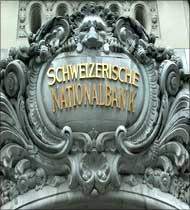Let's imagine a situation. You are watching a Bollywood pot-boiler, where the vile politician loots the people and instructs his lackey to deposit the money in his Swiss bank account so that no one can touch it.
 In another movie, James Bond enters a Swiss bank and is frisked before he gains access to his account.
In another movie, James Bond enters a Swiss bank and is frisked before he gains access to his account.
These are some of our notions of Swiss bank accounts, created by the media in our minds. However, do we truly know what Swiss bank accounts are and how they function? This article aims at shattering some myths surrounding Swiss bank accounts by answering some very basic questions.
What are Swiss bank accounts?
Swiss bank accounts, are just like any other bank account, albeit the heightened security through sophisticated security systems and absolute privacy offered by Swiss banks. All Swiss banks are regulated by the Swiss Federal Banking Commission and serve clients from all over the world.
What kinds of customers are allowed to open a Swiss bank account?
Just like a normal bank, almost any individual can open a Swiss bank account. Swiss bank accounts aren't just for millionaires, criminals or government officials trying to hide ill-gotten wealth, or celebrities protecting their assets from former spouses.
They're available to anyone and average people, too, have Swiss bank accounts. People who live in countries with unstable governments and banks in particular often turn to Swiss banks because of their security and privacy.
How does a Swiss Bank account work?
A non-Swiss national must be at least 18 years of age to open an account in a Swiss bank. The application can be made by mail or in person. Usually, there is no minimum balance required to open a Swiss bank account.
However, once the account holder starts making transactions, it becomes mandatory to maintain a minimum balance. This amount can differ from bank to bank and varies for different types of accounts.
Account holders also have the facility to withdraw money in any currency. Switzerland's Anti-Money Laundering law requires a number of certified documents and a proof of income source. A Swiss bank account can be closed at any time without any restrictions or fee.
What are the advantages of a Swiss bank account?
Here are some of the advantages of Swiss bank accounts:
Privacy - Swiss bank accounts offer privacy akin to doctor/patient confidentiality or client/attorney confidentiality.
Swiss law forbids bankers to disclose the existence of your account or any other information about it without your consent (except in certain circumstances).
Breach of confidentiality could result in bankers facing up to six months in prison and a fine of up to Swiss franc 50,000. And, you have the option of suing the bank for damages.
Needless to say, Swiss banks are very careful about protecting your privacy. The only exceptions to the Swiss banking privacy rule are criminal activities such as drug trafficking, insider trading or organised crime.
Low risk - Switzerland has had an extremely stable economy and infrastructure for many years and hasn't been at war with another country since 1505.
Higher returns - Swiss bankers are also highly trained in investing and know how to grow your money. Swiss bank accounts pay higher yields than other money market accounts.
There is more to Swiss Bank accounts and this can be understood by studying the history of Swiss banking which is one of the oldest banking establishments going as afr back as 1713.







 © 2025
© 2025